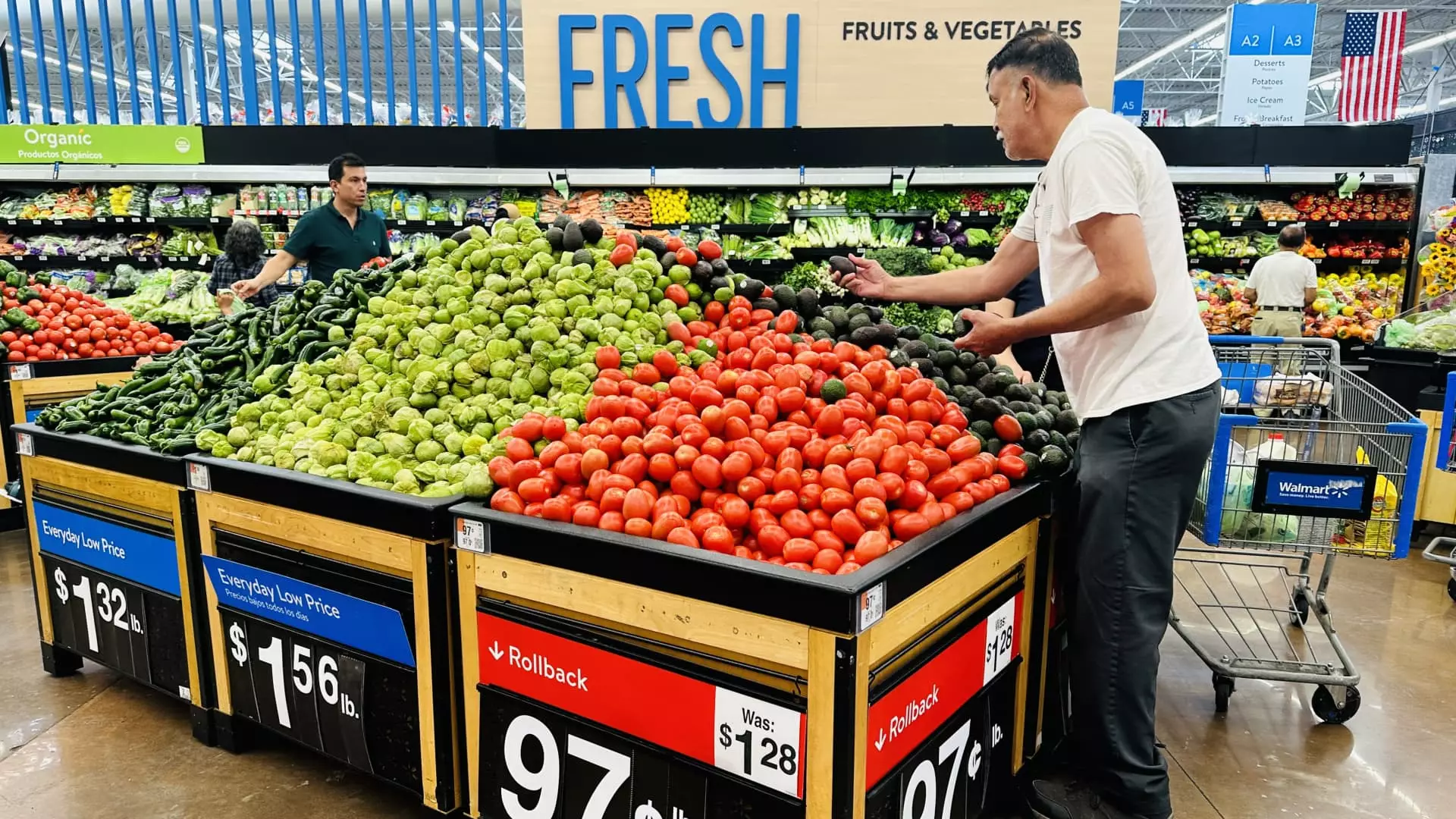In today’s economy, an alarming 50% of Americans are resorting to buy now, pay later (BNPL) loans, a trend that’s raising eyebrows and darkening the financial horizon for many. A recent survey by Lending Tree reveals that approximately 25% of these individuals are using BNPL to purchase groceries—a staggering increase from previous years. This surge reflects not just a change in buying habits but a disturbing shift in the overall economic resilience of the American consumer. With ongoing inflation, rising interest rates, and vulnerabilities tied to tariffs, individuals are making desperate choices that may jeopardize their financial futures.
The idea of buying now and paying later seems beguiling, especially amid an economic climate that appears increasingly hostile to the average citizen. Yet, while these loans appear to offer relief, they are a double-edged sword. With 41% of users admitting to making late payments, it becomes evident that many are grappling with severe fiscal limitations. This statistic should not only alarm consumers but serve as a wake-up call for policymakers and financial institutions alike.
An Escalating Crisis for Everyday Americans
The rise in BNPL usage among consumers hasn’t come without repercussions. As Lending Tree’s chief consumer finance analyst, Matt Schulz, indicates, many individuals are struggling to balance their budgets amid a whirlwind of economic challenges. Intriguingly, although Schulz refrains from explicitly labeling this trend as a recession indicator, it is hard to argue against the reality that economic conditions are deteriorating for a significant portion of the population.
That said, one cannot help but question whether a society that accepts such debt-derived financial practices as the norm is teetering closer to an economic precipice. After all, if consumers are increasingly using loans to buy essentials like groceries, one must wonder how far removed we are from a widespread financial breakdown.
The Allure of BNPL and Its Hidden Perils
BNPL loans are marketed as an attractive alternative to traditional credit cards, often boasting zero interest. However, the reality is that these loans can quickly lead individuals down a perilous path filled with late fees and compounded stress. As evidenced by the report that 60% of BNPL users are juggling multiple loans, the temptation to finance everything from groceries to concert tickets spills over into a precarious cycle of debt.
This issue of dependence on BNPL loans has raised moral and ethical questions surrounding consumer behavior in America. When nearly 60% of general admission attendees at Coachella are financing their tickets using BNPL methods, one must ponder what this says about our collective values. Are we prioritizing experiences over necessity? Are we so fixated on maintaining a façade of normalcy in our lifestyles that we willingly consume ourselves in debt?
The Need for Caution and Personal Responsibility
Schulz wisely asserts that while BNPL loans can act as an interest-free tether for struggling consumers, overuse poses a significant danger. It compels us to reevaluate not just individual financial practices but the broader implications of consumerism in a landscape fraught with uncertainty. Those who enter into these financial agreements must proceed with utmost caution, ensuring they don’t overshoot their budgets or accumulate debt burdens they can’t manage.
Moreover, one must urge banks and financial institutions to adopt more responsible lending practices that consider the health of the consumer rather than merely the profitability of the loan itself. Offering transparency regarding the pitfalls and potential consequences could go a long way in helping consumers make more informed choices.
In a world increasingly driven by immediate gratification, this caution is not merely prudent; it is essential. As we move forward, the collective responsibility of consumers, financial institutions, and policymakers will be paramount in fostering a more stable economic environment. While the allure of financing a cheeseburger may be laughable at a glance, the underlying truths about financial literacy and consumer awareness are profoundly serious.

